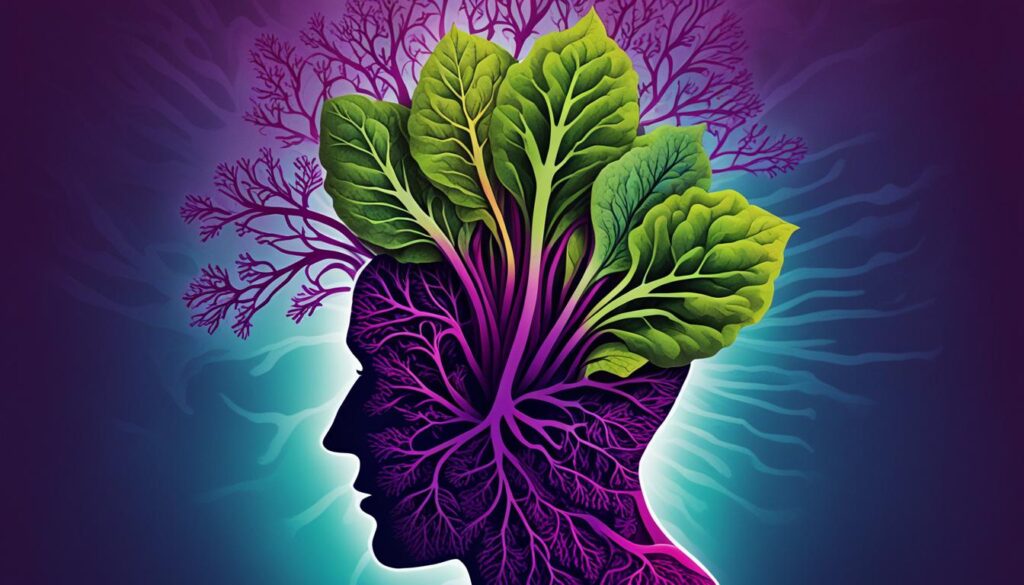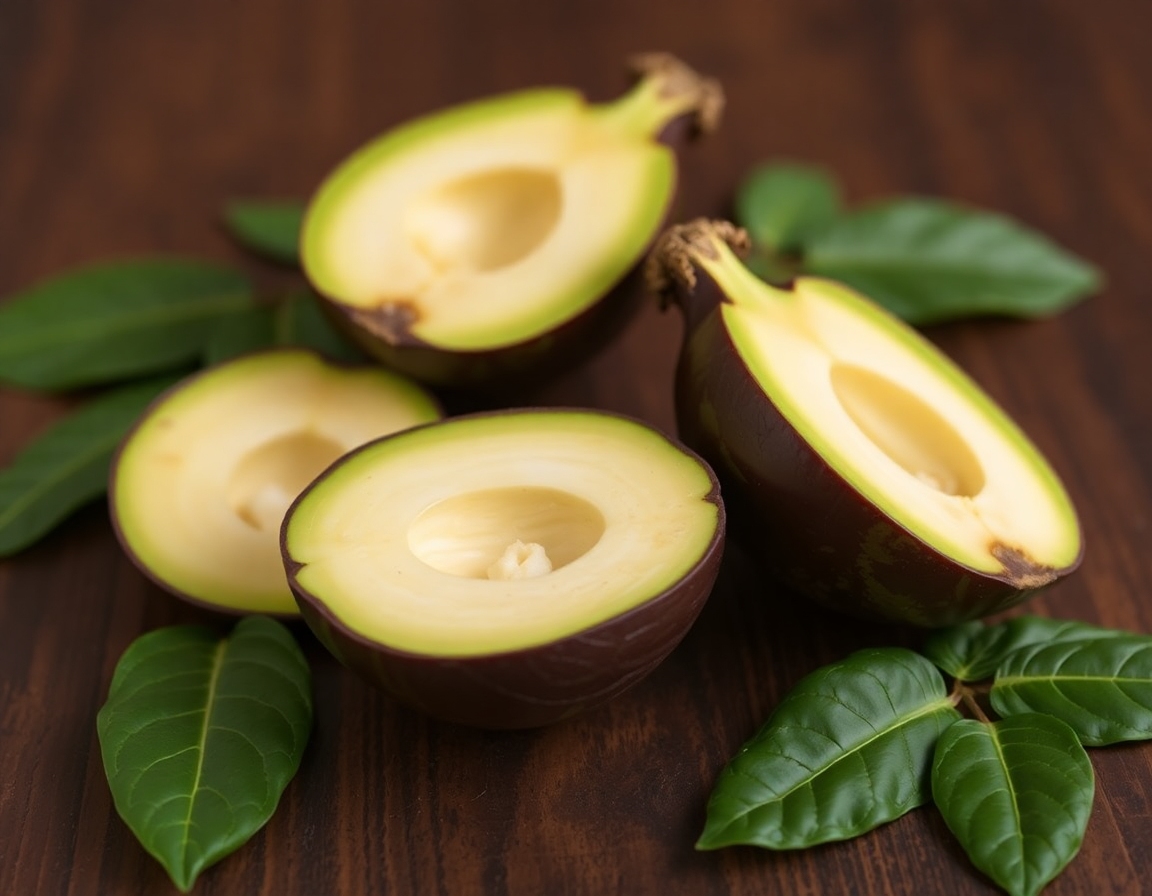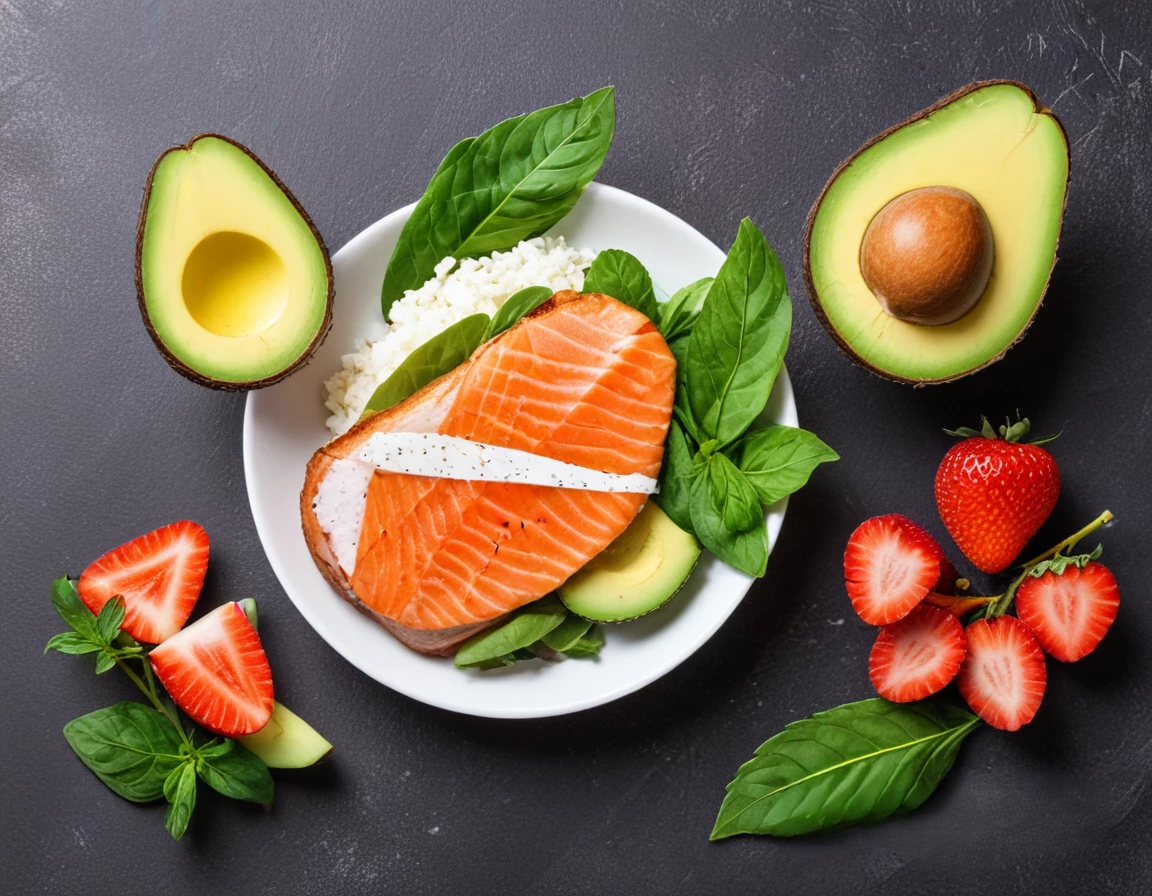Did you know one teaspoon of beetroot powder is like eating a whole beet? This superfood is full of vitamins, minerals, and antioxidants. It helps your body in many ways, from boosting sports performance to supporting your gut and brain health. Beets are becoming a key food for good health.
Key Takeaways
- Beets are a nutritional powerhouse, rich in vitamins, minerals, and antioxidants like betaine, folate, manganese, and betalains.
- Beets can help lower blood pressure, boost athletic performance, reduce inflammation, and potentially fight cancer.
- Beets are low in calories but high in fiber, water, and protein, making them a great addition to a weight management diet.
- Beets can be enjoyed in a variety of ways, including roasting, juicing, pickling, or eating them raw.
- Beets offer a wide range of health benefits, from supporting digestive and brain health to promoting heart health and boosting the immune system.
Nutritional Powerhouse
Beets are a superfood packed with vitamins, minerals, and antioxidants. They are low in calories but full of nutrients. Beets give you almost all the nutrients your body needs. They have folate, manganese, betaine, and betalains, which are great for health.
A Vitamin and Mineral Treasure Trove
Beets are full of folate, important for growth and heart health. They also have a lot of manganese for bone health and brain function. Plus, beets have potassium, magnesium, phosphorus, vitamins C and B6.
Powerful Antioxidants Galore
Beets are known for their betalains, a special antioxidant. These antioxidants help fight inflammation and protect against cancer. This makes beets a nutritional powerhouse.
| Nutrient | Amount per 1 cup (136g) of raw beets | Percentage of Daily Value (DV) |
|---|---|---|
| Calories | 58.5 | – |
| Carbohydrates | 13g | – |
| Fiber | 3.81g | 8.81% |
| Protein | 2.19g | – |
| Vitamin C | 7.4mg | 8% |
| Folate | 148μg | 37% |
| Manganese | 0.27mg | 14% |
| Potassium | 442mg | 9% |
Beets are truly a superfood with amazing nutritional value. They have vitamins, minerals, and antioxidants. These nutrients support your health and well-being.
Blood Pressure Control
Beets could be your new best friend if you want to manage your blood pressure naturally. They are full of nitrates, which turn into nitric oxide in your body. This molecule helps widen blood vessels and lowers blood pressure.
Studies show beets and beet juice are great for high blood pressure. A 2017 study found that eating beet juice lowered blood pressure by 3.55 mm Hg in systolic and 1.32 mm Hg in diastolic pressure. Another study in 2022 showed that drinking 250 mL of beet juice daily helped the most with blood pressure.
Beets also help with blood pressure over time. Drinking beet juice every day for 60 days can really help with hypertension. This makes beets a great long-term way to manage high blood pressure and lower the risk of heart disease and stroke.
If you want to improve your heart health, add more beets to your meals. You can roast them, juice them, or eat them raw. This vegetable could be the key to keeping your blood pressure under control.
Athletic Performance Booster
Adding beets to your fitness routine can give you an edge. Studies show that beets’ nitrates boost athletic performance. They are great for athletes and fitness lovers.
Beets are packed with nitrates. These help your cells make more energy. This means better endurance, improved heart health, and more efficient oxygen use during exercise.
Boosting Endurance and Oxygen Efficiency
Eating beets or beetroot juice before sports can make you perform better. Cyclists can use up to 20% more oxygen. Runners can run 5% faster in long races. Even swimmers and kayakers see big improvements with beet juice.
It’s important to eat beets or their juice when blood nitrate levels are highest. This happens 2-3 hours after eating. This timing helps you get the most out of beets for sports.
“Beets are a true endurance-boosting superfood. Incorporating them into your pre-workout routine can give you that extra edge to push harder and go further.”
If you’re an athlete or love fitness, try adding beets to your diet. It could change the game for you. So, put on your running shoes, drink some beet juice, and get set to crush your next challenge.
Anti-Inflammatory Properties
Beets are more than just a colorful, tasty vegetable. They are a powerhouse of anti-inflammatory properties. The pigments in beets, called betalains, can reduce inflammation in the body. Chronic inflammation is linked to many health problems, like obesity, heart disease, liver disease, and cancer.
Beet juice has been shown to lower inflammation markers, such as C-reactive protein and tumor necrosis factor-alpha. This is good news for your health.
Beets also help with pain and discomfort from osteoarthritis, a condition with joint inflammation. While more studies are needed, beets show great promise for fighting chronic diseases.
The Nutritional Breakdown of Beets
A 3.5-ounce (100-gram) serving of boiled beetroot is packed with nutrients. Here’s what you’ll find:
- 44 calories
- 1.7 grams of protein
- 0.2 grams of fat
- 10 grams of carbs
- 2 grams of fiber
- 20% of the Daily Value (DV) of folate
- 14% of the DV of manganese
- 8% of the DV of copper
- 7% of the DV of potassium
- 6% of the DV of magnesium
- 4% of the DV of Vitamin C
- 4% of the DV of Vitamin B6
- 4% of the DV of iron
Beets are a superfood, full of vitamins, minerals, and antioxidants. They support overall health and well-being.
Drinking 8.5 ounces (250 mL) of beet juice for 2 weeks can lower inflammation markers. The betalains in beets have strong anti-inflammatory effects. Adding beets to your diet can be a great way to fight inflammation.
Benefits for Digestion
Beets are packed with fiber, making them great for your digestive health. One cup of raw beets has 3.4 grams of fiber, which is about 7% of what you need daily. Fiber keeps your bowel movements regular, prevents constipation, and helps the good bacteria in your gut.
Beets also help lower the risk of heart disease, diabetes, and some cancers. Fiber aids in weight management by making you feel full and controlling blood sugar. Adding beets to your meals can boost your digestive and overall health.
Beets and Digestion
Beets are full of fiber, which is key for a healthy gut. This fiber keeps you regular, fights constipation, and supports good gut bacteria. It also lowers the risk of heart disease and diabetes.
Beets are also high in glutamine, an amino acid that keeps the gut lining strong. This helps with digestive health and overall well-being.
While juicing beets has health perks, eating whole beets or making beet smoothies gives you more fiber and digestive support. Juicing reduces fiber content, so eating beets whole is best for digestive benefits.
Brain Health Support
The humble beet may unlock better brain health and cognitive function. Research shows that the nitrates in beets could boost brain performance. They might also lower the risk of dementia and other neurodegenerative disorders.
Studies reveal that beet nitrates increase blood flow to the brain, especially the frontal lobe. This area is key for higher-level thinking and decision-making. A study with type 2 diabetes patients found that daily beetroot juice consumption improved their reaction times on cognitive tests.
As we get older, our nitric oxide levels drop, which affects brain aging and function. Beets can help by raising nitric oxide levels. This makes blood vessels wider and improves blood flow to the brain. This could help keep cognitive skills sharp and prevent decline.
Another study showed that older adults eating a diet high in nitrates, like beetroot juice, had better blood flow to brain areas for complex tasks. This was compared to those eating less nitrates.
While more research is needed, eating beets could be a tasty way to support brain health and cognitive function as we age. Beets can be roasted, juiced, or added to salads. They are a versatile and nutrient-rich vegetable with potential brain benefits.

“The nitrates in beets may improve cognitive function and brain blood flow, potentially reducing the risk of dementia and other neurodegenerative disorders.”
Cancer-Fighting Potential
Beets are more than just a tasty veggie; they’re packed with compounds that could fight cancer. The bright colors in beets come from betalains. These have been shown to stop cancer cells from growing and dividing in lab tests.
Studies show that beetroot extract can slow down cancer cell growth and division. Beets contain betaine, ferulic acid, rutin, kaempferol, and caffeic acid. These have shown strong anti-cancer effects in lab tests. Also, eating more beets is linked to a lower risk of some cancers.
| Compound | Potential Cancer-Fighting Properties |
|---|---|
| Betalains | Inhibit the growth and division of cancer cells |
| Betaine | May be associated with a lower risk of certain cancers |
| Ferulic Acid | Exhibits anti-tumor and anti-inflammatory effects |
| Rutin | Possesses antioxidant and anti-proliferative properties |
| Kaempferol | Demonstrates anti-cancer and anti-metastatic effects |
| Caffeic Acid | Shows potential for inhibiting tumor growth and progression |
While research looks promising, most studies focus on isolated compounds, not whole beets. We need more studies to understand how beets can help prevent cancer in people.
Beets might be a powerful tool in fighting cancer, but more research is needed. Adding beets to your meals could help protect against some cancers. Always talk to your doctor before making big changes to your diet for health reasons.
Weight Management Aid
Adding beets to your meals can help with weight management. These colorful roots are low in calories but full of nutrients that aid in losing weight.
Beets are great for weight management because they’re high in fiber. This fiber makes you feel full, which can lead to eating less and losing weight. Beets also have a lot of water, which adds to feeling full and satisfied after meals.
Beets are not just about fiber and water. They also have a good amount of protein. Protein helps you stay full longer, reducing cravings and overeating. With their low calories, high fiber, and moderate protein, beets are perfect for those trying to manage their weight.
It’s easy to add beets to many dishes, like roasted salads or smoothies. Including beets in your meals helps with weight management and gives you many health benefits. These include better digestion, less inflammation, and improved brain function.
| Nutrient | Amount per 100g of Beets |
|---|---|
| Calories | 43 |
| Fiber | 2.8g |
| Protein | 1.6g |
| Water | 88g |
“Beets are a true superfood when it comes to weight management. Their unique combination of low calories, high fiber, and moderate protein makes them an excellent choice for anyone looking to balance their energy intake and achieve their weight loss goals.”
Versatile and Delicious
Beets are a nutritional powerhouse that are also versatile and delicious. They can be enjoyed in many ways, making them easy to add to your meals. You can roast, juice, pickle, or eat them raw, depending on what you like.
Roasted Beets
Roasting beets makes them sweet and tender. Just toss them with olive oil, add salt and pepper, and roast until they’re soft. You can eat them alone or add them to salads and grain bowls.
Beet Juice
Juicing beets gives you a boost of nutrients like betalains, folate, and manganese. You can drink beet juice by itself or mix it with other fruits and veggies. A cup of raw beet greens has over 275 lutein micrograms, which is great for your eyes.
Pickled Beets
Pickling beets keeps their color bright and enhances their flavor. This method makes them taste earthy and slightly sweet. You can enjoy pickled beets as a side dish, in salads, or on burgers and sandwiches.
Beets can also be bought precooked and canned for convenience. No matter how you prepare them, beets add flavor and nutrition to many dishes. They’re great in salads, soups, dips, and side dishes.
“Beets are a true superfood, packed with essential vitamins, minerals, and antioxidants that can benefit your health in so many ways.”
Beets are easy to add to your diet in various ways. You can roast, juice, pickle, or eat them raw. This makes it simple to enjoy their nutritional benefits.
Precautions and Side Effects
Beets are great for your health but have some things to watch out for. They are high in oxalates, which can make kidney stones more likely, especially if you’ve had them before. If you have had kidney stones or gout, you might want to eat beets less often.
Beets can turn your urine and stool red, a thing called beeturia. This is not harmful and just means your body is getting antioxidants from the beets.
Some people might get allergic reactions like itchiness or a rash from eating too many beets. The fiber in beets can also upset your stomach if you’re sensitive to it.
Beets have a lot of nitrates, which can lower your blood pressure. This might make you feel dizzy or cause you to fall, especially if you have certain health issues or are pregnant.
Remember, eating beets should be in moderation as part of a balanced diet. Always talk to a doctor if you’re worried about how beets might affect your health.

“Beets are a nutritious addition to the diet, but it’s important to be mindful of potential side effects, especially for those with a history of kidney stones or gout.”
Conclusion
Beets are a vibrant and versatile vegetable that are great for your health. They support heart health, athletic performance, and digestive function. Beets also help fight cancer with their nutritional profile.
Their rich color comes from betalains, which are powerful antioxidants. These antioxidants also have anti-inflammatory effects.
Beets can be enjoyed in many ways, making it easy to add them to your diet. You can roast, juice, pickle, or eat them raw. Beets are a tasty and easy way to improve your health and wellness.
They are full of vitamins, minerals, and bioactive compounds. Eating beets health benefits regularly can help you live a balanced and healthy life.
There are many ways to incorporating beets into your diet. Try different cooking methods and explore various beet types, like red, purple, golden, and rainbow beets. Adding beets to your meals can help you enjoy their nutritional benefits and improve your health.
FAQ
What are the benefits of eating beets?
Beets are full of vitamins, minerals, and antioxidants. These include betaine, folate, manganese, and betalains. They help control blood pressure, boost athletic performance, and reduce inflammation. Beets also support digestive and brain health and may fight cancer.
What is the nutritional value of beets?
Beets have a lot of nutrients, almost all the vitamins and minerals the body needs. They are low in calories but high in folate, manganese, copper, potassium, magnesium, and vitamins C and B6.
How can beets help with blood pressure control?
Beets have a lot of nitrates, which help lower blood pressure. These nitrates turn into nitric oxide. This molecule makes blood vessels wider, which lowers blood pressure.
Can beets enhance athletic performance?
Yes, beets improve how efficiently cells make energy. This means better endurance, cardio performance, and oxygen use during exercise.
What are the anti-inflammatory properties of beets?
Beets have pigments called betalains that fight inflammation. Drinking beet juice can lower inflammation markers like C-reactive protein and tumor necrosis factor-alpha.
How do beets benefit digestive health?
Beets are full of fiber, which helps with digestion and prevents constipation. This fiber also feeds good gut bacteria. It may lower the risk of heart disease, diabetes, and colon cancer.
How can beets support brain health?
Beets increase blood flow to the brain, especially the frontal lobe. This area is for thinking and decision-making. This may improve brain function and lower the risk of dementia.
Do beets have cancer-fighting properties?
Yes, beets have compounds that fight cancer. These include betaine, ferulic acid, rutin, kaempferol, and caffeic acid. Studies show that beetroot extract can slow cancer cell growth and division.
How can beets aid in weight management?
Beets are low in calories but high in water, fiber, and protein. These help control energy intake and make you feel full. The fiber also supports digestive health and can reduce hunger, leading to eating fewer calories.
What are some ways to incorporate beets into your diet?
Enjoy beets roasted, juiced, pickled, or raw. Roasting them brings out sweetness and caramelization. Juicing gives you a concentrated dose of nutrients.
Are there any precautions or side effects to be aware of with beets?
Beets have oxalates, which can increase kidney stone risk. Those with kidney stones or gout should limit or avoid beets. Beets can also turn urine and stool red, which is safe but surprising.
















